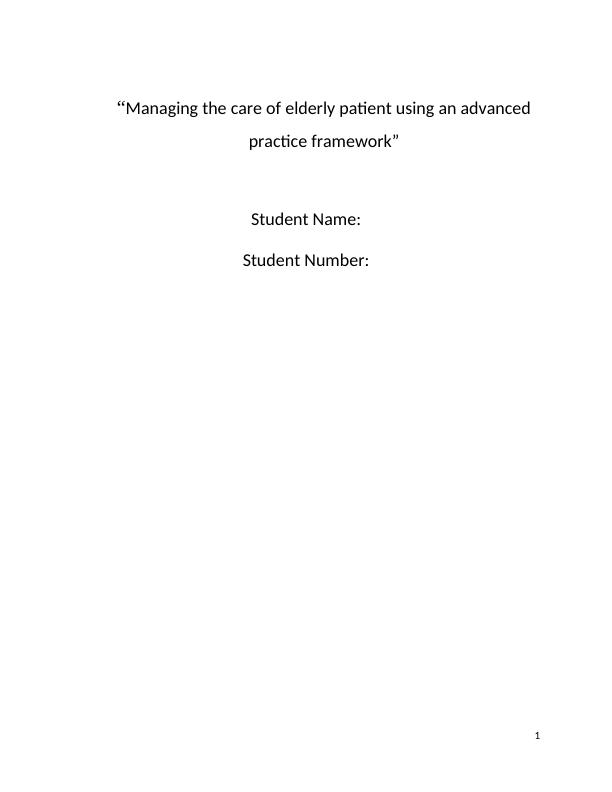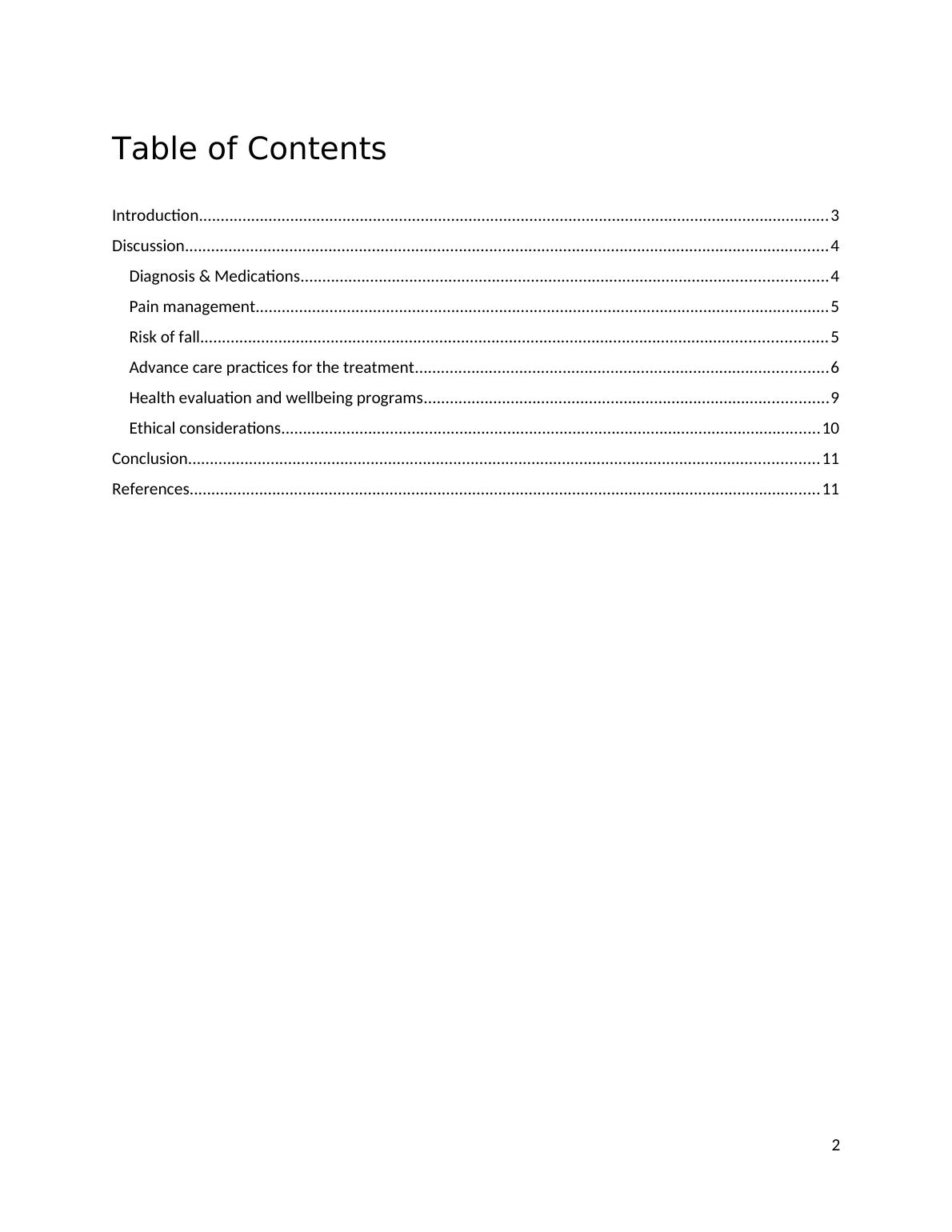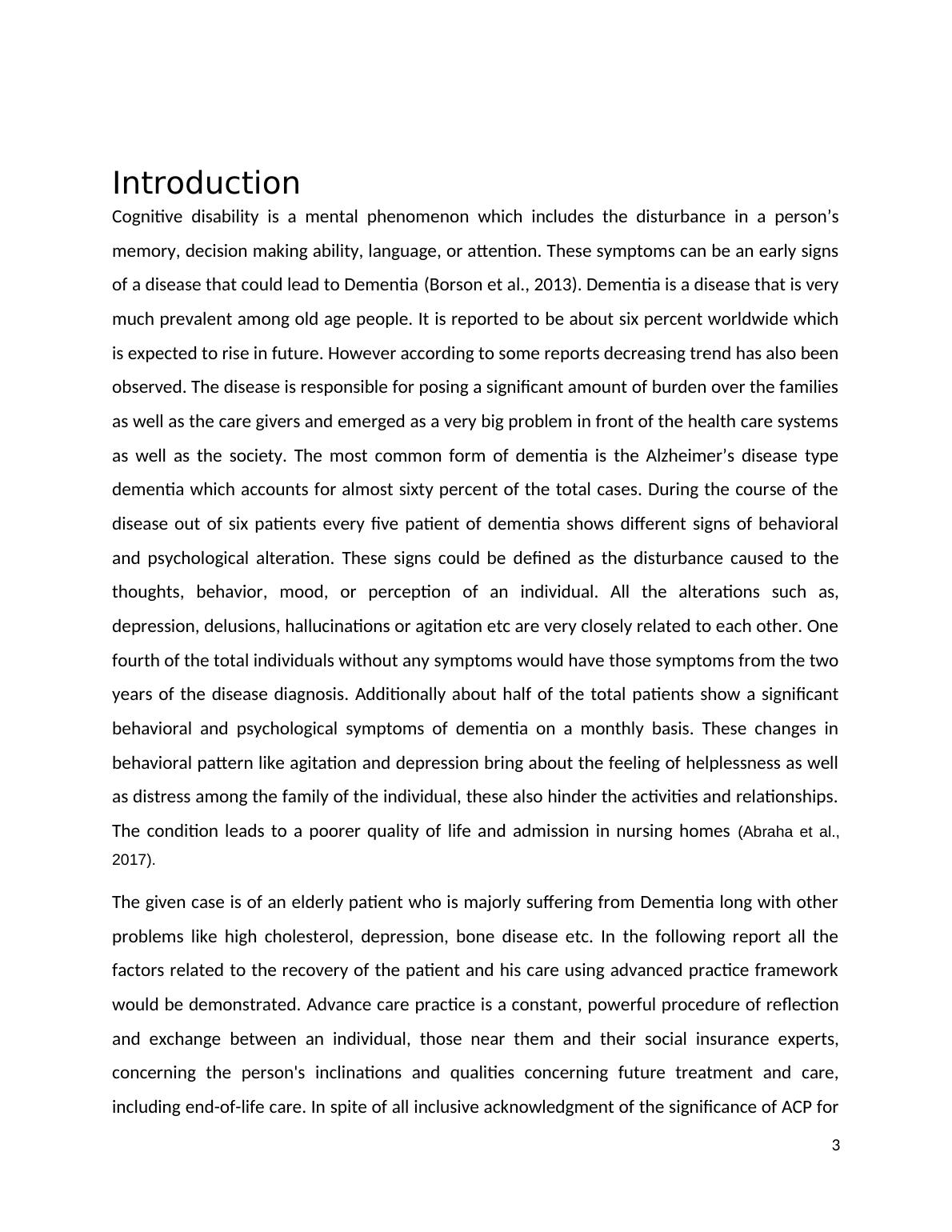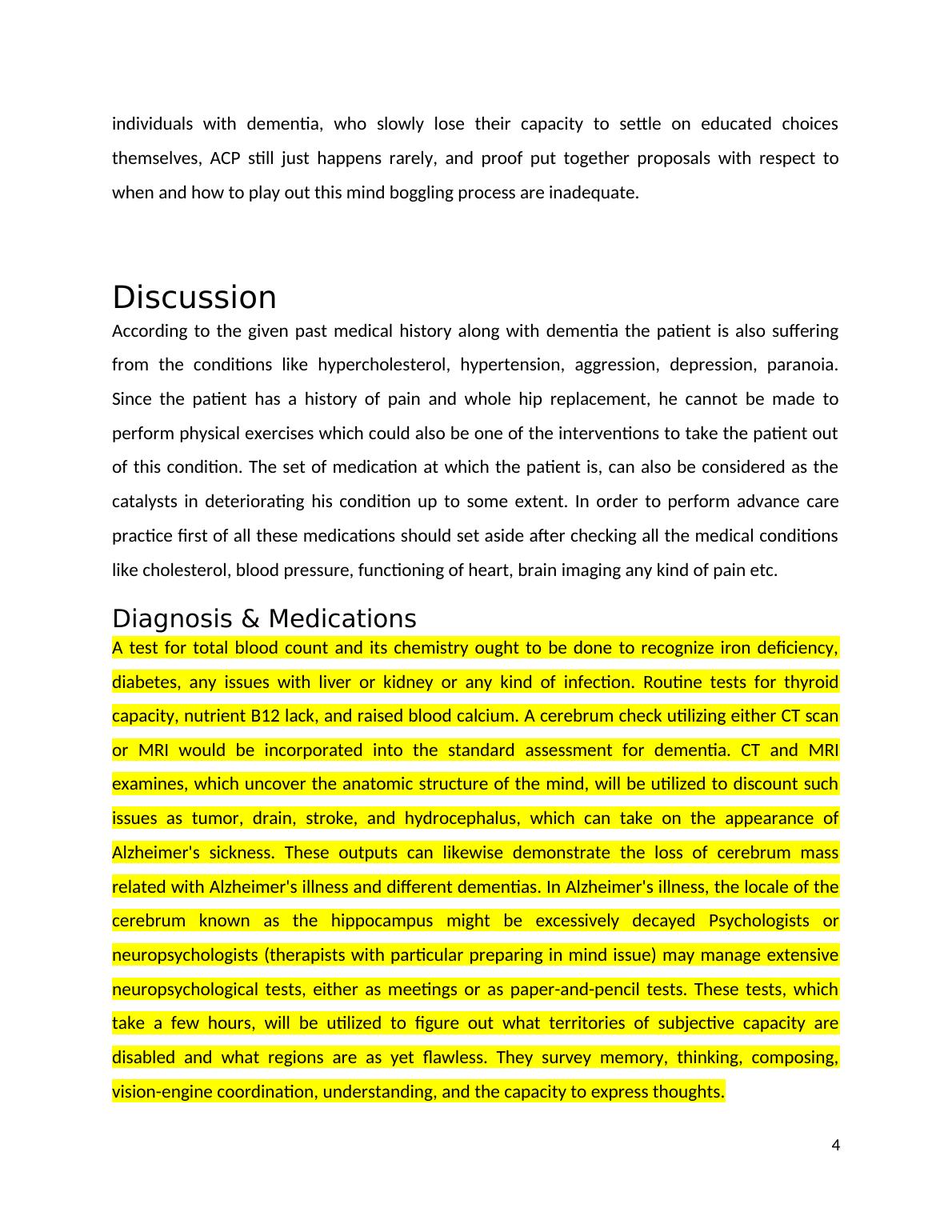Managing the Care of Elderly Patients Using an Advanced Practice Framework
Analyzing the case of Mr Johnson, an 86-year-old retired vet residing in a residential aged care facility, who went missing and was found by the police.
15 Pages4502 Words418 Views
Added on 2023-04-10
About This Document
This document discusses the management of care for elderly patients using an advanced practice framework. It covers topics such as diagnosis, medications, pain management, and the risk of falls. The document also explores advance care practices for treatment and ethical considerations. Suitable for healthcare professionals and caregivers.
Managing the Care of Elderly Patients Using an Advanced Practice Framework
Analyzing the case of Mr Johnson, an 86-year-old retired vet residing in a residential aged care facility, who went missing and was found by the police.
Added on 2023-04-10
ShareRelated Documents
End of preview
Want to access all the pages? Upload your documents or become a member.
Research in Nursing - Assignment PDF
|12
|3330
|72
Nursing Care for Dementia Patient | Assignment
|18
|5108
|108
Advanced Health Assessment for Dementia Management
|15
|4566
|85
Case Study about What Do You Mean by Nursing?
|5
|1032
|20
CNA507-Mental Health - Well Being and Dementia Care
|8
|1960
|50
Sun Downing Syndrome and Elderly Dementia
|7
|1730
|110




